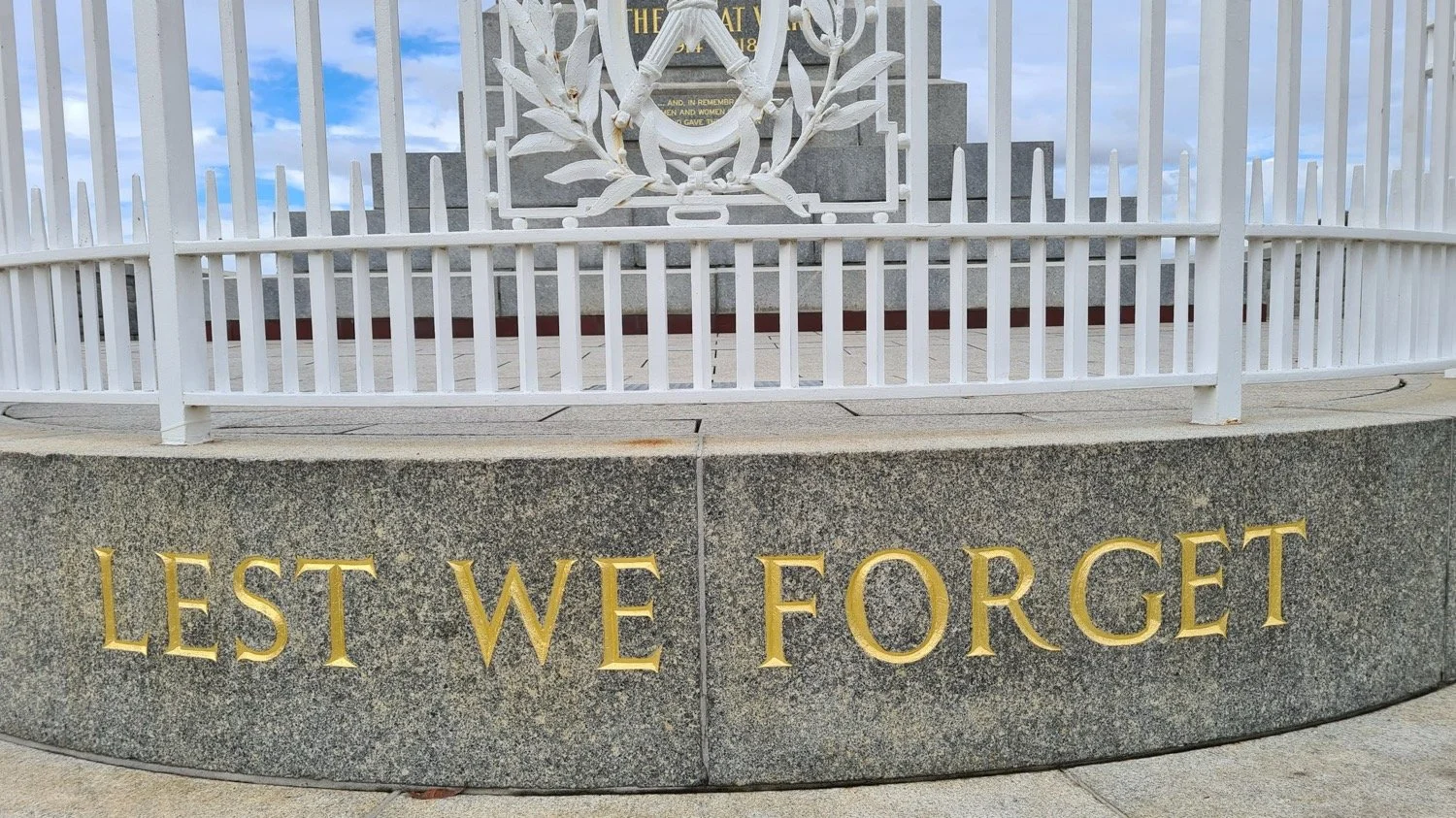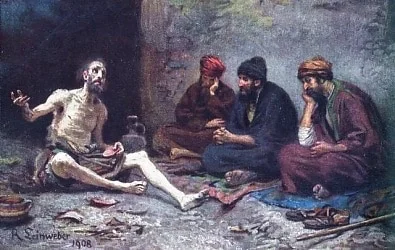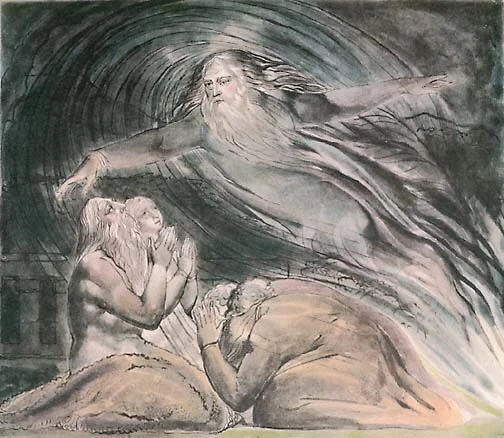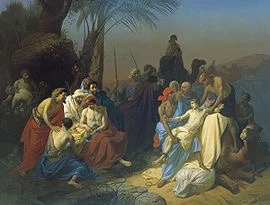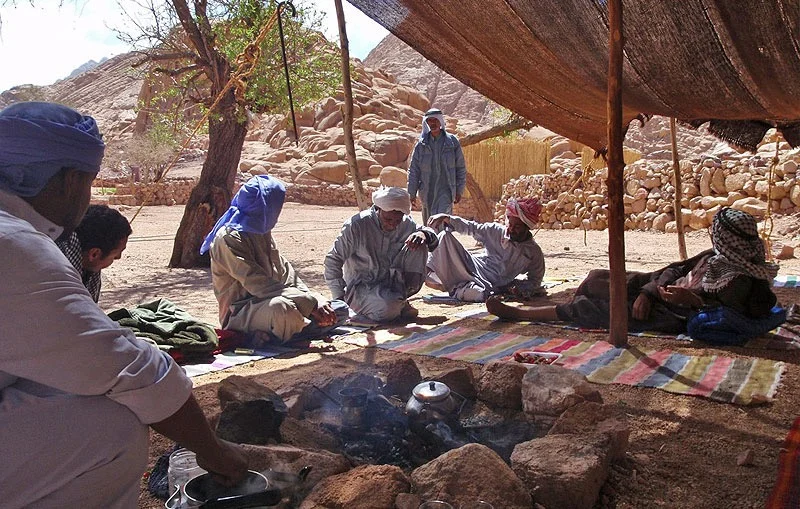Readings for the day: Job 33, 34, 35, 36
“In this you rejoice, though now for a little while, if necessary, you have been grieved by various trials, so that the tested genuineness of your faith—more precious than gold that perishes though it is tested by fire—may be found to result in praise and glory and honor at the revelation of Jesus Christ.” (1 Peter 1:6-7)
“For they disciplined us for a short time as it seemed best to them, but he disciplines us for our good, that we may share his holiness. For the moment all discipline seems painful rather than pleasant, but later it yields the peaceful fruit of righteousness to those who have been trained by it.” (Hebrews 12:10-11)
“For we do not want you to be unaware, brothers, of the affliction we experienced in Asia. For we were so utterly burdened beyond our strength that we despaired of life itself. Indeed, we felt that we had received the sentence of death. But that was to make us rely not on ourselves but on God who raises the dead.” (2 Corinthians 1:8-9)
There is such a thing as righteous suffering. Redemptive suffering. Suffering with a purpose. We may not always see that purpose and, in fact, it is often only revealed upon reflection after the fact. But that doesn’t mean all suffering is meaningless. Or all suffering is bad. Or all suffering is to be avoided. Clearly, the first century believers suffered. 10 of the 12 Apostles would be tortured and executed in excrutiating ways for their faith. (Judas committed suicide and John, though he suffered, died of old age.) Throughout the first three centuries of the church’s existence, Christians were burned as torches in Nero’s garden. Thrown to the lions for sport in the arena. In certain regions of the Empire, they were systematically rounded up and killed. This was not only true back then but remains true in certain places around the world today. According to Christianity Today, it is estimated that over 70 million Christians have been martyred since the time of Jesus. They suffered and died in places all over the earth. Ottomon Turkey. Nazi Germany. Soviet Russia. Communist China and North Korea. Uganda. Sudan. Mexico. Columbia. And the suffering continues. I have seen it firsthand in Ethiopia and have spoken to eye witnesses in South Sudan, Djibouti, and Somalia.
The introduction of Elihu to the narrative represents a turning point in Job. At first glance, Elihu just seems to be piling on. Repeating the same tired arguments of Job’s friends. But a careful reading of the text reveals a significant shift. Elihu bursts on the scene declaring his anger at both Job and his three friends. (Job 32:1-5) He believes he has something new to offer that has not yet been said. So what is it that Elihu brings to the table? It is the idea that God does allow the righteous to suffer in order to purify and to save. Perhaps the key passage is Job 33:12-30...
“Behold, in this you are not right. I will answer you, for God is greater than man. Why do you contend against him, saying, 'He will answer none of man's words'? For God speaks in one way, and in two, though man does not perceive it. In a dream, in a vision of the night, when deep sleep falls on men, while they slumber on their beds, then he opens the ears of men and terrifies them with warnings...Remember, they had no Bible. No written records. So the Word of God would come to them in visions and dreams. Why? To punish? To judge? To wound? To destroy? No...So that God may turn man aside from his deed and conceal pride from a man; he keeps back his soul from the pit, his life from perishing by the sword. This is deeply significant as it adds a new layer of meaning to the story. God does allow suffering but it’s for our good. He uses suffering to purge the pride from us. The pride - as I said yesterday - Job himself suffers from. Yes, Job is a righteous man. Yes, Job is a blameless man. But Job is also a sinful man. Though he has a heart after God, he is not perfect and God will use his suffering (as we will see at the end of the book) to cleanse the depths of Job’s heart.
God not only warns us in dreams and visions and through His Word, he also uses our physical pain for our good and for His glory. "Man is also rebuked with pain on his bed and with continual strife in his bones, so that his life loathes bread, and his appetite the choicest food. His flesh is so wasted away that it cannot be seen, and his bones that were not seen stick out. His soul draws near the pit, and his life to those who bring death.” If we follow the logic of Job’s friends - whom Elihu rebukes strongly - we would conclude that those who suffer deserve it. They should go down to death. But that’s not where Elihu lands. His God is not a harsh judge but a faithful, loving Father who delivers His children ultimately from their pain and suffering. “If there be for him an angel, a mediator, one of the thousand, to declare to man what is right for him, and he is merciful to him, and says, 'Deliver him from going down into the pit; I have found a ransom; let his flesh become fresh with youth; let him return to the days of his youthful vigor'; then man prays to God, and he accepts him; he sees his face with a shout of joy, and he restores to man his righteousness. He sings before men and says: 'I sinned and perverted what was right, and it was not repaid to me. He has redeemed my soul from going down into the pit, and my life shall look upon the light.' "Behold, God does all these things, twice, three times, with a man, to bring back his soul from the pit, that he may be lighted with the light of life.” The key phrase being that last sentence. It is God who does all these things for man in order to bring his soul back from the pit, lighted with the light of life.
This understanding squares with what Christians have said throughout the centuries. Martyrs facing their death without fear. Those who suffer enduring for the sake of something greater. They understand God is at work even in the middle of their pain. Not only bringing about His will and His glory but also continuing to sanctify and purify even their own hearts in the midst of it all. The reality is Job needs to be humbled and indeed will be humbled before the Lord of Hosts. This is one of the most important lessons from the Book of Job for all of us.




